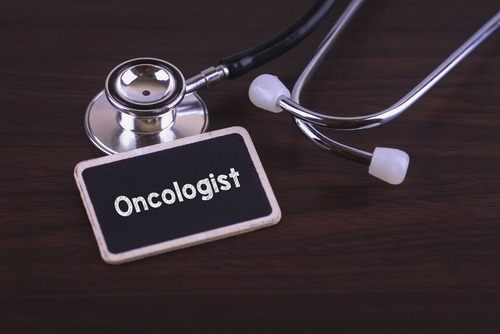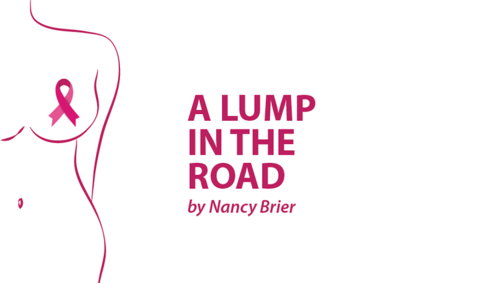Recently, I spoke with Dr. Michel Choueiri, an oncologist who trained at MD Anderson Cancer Center and the University of California, San Diego. He’s the founder of cancerdocs.org, a resource that helps patients access second opinions and answer cancer questions, and he’s passionate about helping all people get the best care possible.
Here’s his advice:
1. ‘If a doctor tells you that you have cancer, get a second opinion.’
During our conversation, I learned that in cancer cases, a second opinion differs on diagnosis or treatment from the first one up to 60% of the time according to many studies, including some done at Harvard.
I was listening closely, because for me, a second opinion saved my life. The first doctor I met with told me my lump was nothing to worry about.
I asked Dr. Choueiri if a second opinion is ever not warranted. “Rarely,” he said. “Only in those highly unusual cases when the need for treatment is so urgent that there’s no time to get another opinion. If you are treated at a top-rated cancer facility, a second opinion is also not as important because colleagues discuss among themselves. In every other case when you are treated in a community setting,” he emphasized, “get a second opinion and get your peace of mind.”
“With breast cancer for example,” he went on, “there’s often a rush to perform a total mastectomy when simpler options, like lumpectomy, might be more appropriate. Time is of the essence, but slowing the process down long enough to get the information you need is generally a very good idea.”
Again, this advice resonates strongly. After I was diagnosed, I met a surgeon who said she wanted to schedule a mastectomy for the very next morning. Instead of a mastectomy, I got a second opinion and ultimately had neoadjuvant therapy; that is, chemo first to shrink my tumor and then a nipple-saving lumpectomy. For me, it was a much better option.
I hope every cancer patient heeds Dr. Choueiri’s advice and gets a second opinion.
2. Don’t panic
“As a newly diagnosed patient, your first instinct might be to get on Google and research statistics on survival. That is OK if you are very knowledgeable about your case. However, there are many variables [that] make this disease different for every person, and the accuracy of what you read online is often questionable. Keep in mind that if you have detected your cancer early, cancer survival rates are high. Just don’t panic,” Dr. Choueiri said. “All cancers are different, and your situation might be more optimistic than you think.”
When I got my breast cancer diagnosis, I found my new health status shocking, and some websites only fed my fears. Dr. Choueiri recommends that you get as much information as you can about your own case and not let the web trigger anxiety. Personally, I found it helpful to take occasional breaks from online research and to avoid some sites altogether.
3. Find an NCI-designated cancer center
“The National Cancer Institute (NCI) website lists the centers that have been deemed by the Institute to be qualified to render excellent treatment of this disease,” Dr. Choueiri advises. “These centers have been very carefully chosen. This should be your absolute starting point in choosing a center.”
I lived in a rural area, far from major hospitals, when I learned about my cancer. Small facilities can offer advantages, but in treating cancer, I found that resources could be seriously limited. The NCI (https://www.cancer.gov.) is a great starting point to get your head around the complicated information you have to process when you are newly diagnosed, and its website will help you find the center nearest you. If you don’t know where to turn, NCI can help.
4. Join cancer patient forums
“It’s understandable that patients forget or even misunderstand lots of what doctors say during appointments,” Dr. Choueiri told me. I think every patient can relate.
He went on: “This happened to me when my grandmother was diagnosed with multiple myeloma. Despite my knowledge, I felt a blank in my head when the oncologist was talking to my grandmother, who has sadly passed away. Joining a patient forum helps you in different ways: you can engage in discussions using language you understand, ask questions and get answers from people who have been in your shoes. Most importantly, it allows you to research issues at your own pace and to come back with further questions. This is not always possible in a clinic setting.”
Personally, I find these cancer forums very helpful. I’ve used them to understand my disease better, and they’ve helped me learn from the experiences of others.
5. Get an advocate
“Cancer patients need someone to go with them to every single appointment,” Dr. Choueiri said. “Patients really need a second set of eyes and ears to help.”
I know from my own experience that appointments are loaded with information, emotion, and decision-making. When I was newly diagnosed, my husband came with me to every appointment. He asked questions I wouldn’t have thought of, kept careful notes, and advocated on my behalf. Without his help, I honestly don’t know how I could have gotten through it.
6. Keep a copy of all medical records in one place
“This might sound easy or trivial,” Dr. Choueiri said, “but it is neither. For doctors, having access to complete medical records is the difference between being able to offer an opinion with confidence or with doubt.”
As he explained the importance of keeping track of symptoms and side effects, my mind wandered to a small stack of medical records I was using as a coaster in the next room.
Remember, as patients, we are our best advocates.
Note: Breast Cancer News is strictly a news and information website about the disease. It does not provide medical advice, diagnosis, or treatment. This content is not intended to be a substitute for professional medical advice, diagnosis, or treatment. Always seek the advice of your physician or other qualified health provider with any questions you may have regarding a medical condition. Never disregard professional medical advice or delay in seeking it because of something you have read on this website. The opinions expressed in this column are not those of Breast Cancer News, or its parent company, BioNews Services, and are intended to spark discussion about issues pertaining to breast cancer.


